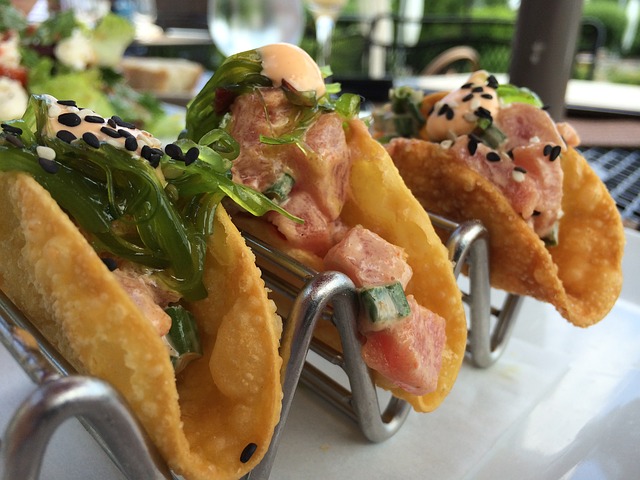Landlocked, Pennsylvania-based vegan seafood company Good Catch has raised a $5.5 million Series A from Stray Dog Capital.
Co-founded in 2017 by brothers Chad and Derek Sarno, Chris Kerr, Eric Schnell, and Marci Zaroff, Good Catch offers high protein, nutrient-rich, plant-based seafood products made from a proprietary mix of six beans – pea, soy, chickpea, lentil, fava, and navy beans. Each product is dairyfree, gluten free, non-GMO, and contains sea algae oil, providing essential omega-3 fatty acids.
The company’s flagship three SKUs include shredded tuna, frozen crab cakes, and fish patties with the line of plant-based tuna in three flavors: original, olive oil and herbs, and Mediterranean, which is slated to hit the market through Whole Foods by the end of this year.
The Niche
Growth in global demand for seafood has increased at 3.2 percent per year since 1960, outpacing the 1 percent annual growth in global population, according to Philippe de Lapérouse, co-head and managing director with HighQuest Consulting. Over the same time period, per capita consumption of seafood has more than doubled from 10 kilograms per person to more than 20 kilograms per person today, driven by demand from Asian markets where seafood has historically been a cornerstone of the regional diet, and by consumers in developed markets who are looking to include healthier protein in their diets.
This unsustainable dynamic, however, is creating a scenario that will see global fisheries collapse by 2048, according to Good Catch.
Due to overfishing and the depletion of wild-caught fish stocks, as well as concern over the ecological ramifications of wild catch fishing, and health concerns surrounding mercury and heavy metal levels found in some seafood, consumers are looking for seafood that leaves a lighter footprint.
Enter, plant-based seafood. Vegan seafood options not only satisfy these concerns, but eliminate questions regarding animal welfare, and give the seven million Americans with often deadly allergies to seafood and shellfish a safe option.
Just Keep Swimming
Plant-based beef and poultry products have been gaining market traction in recent years, becoming more mainstream, while plant-based seafood options have been slower to reach market. However, given that four out of every 10 pounds of consumed animals are fish, early innovators and their investors have the opportunity to corner a lucrative market category.
Right now, there roughly 30 or 32 brands internationally that are addressing chicken, beef, and pork, but no one’s really touched seafood yet,” Schnell told Food Navigator-USA.
This apparent gap in the market is leading to an increasing number of startups dedicated to commercializing plant-based seafoods in one form or another.
~ New Wave Foods, an alum of the Silicon Valley-based IndiBio tech accelerator, launched two products: an algae-based popcorn shrimp, and un-breaded, cooked shrimp ahead of schedule in April 2017 due to high demand.
~ Wild Type, a company growing cultured meat in a laboratory, recently raised $3.5 million through a Seed Round in March of this year led by Spark Capital and including Root Ventures and Mission Bay Capital, along with other unnamed investors, to further the production of lab-grown salmon.
~ Similarly, another startup, Finless Foods (another alum of IndiBio), is also engaged in tissue engineering to develop lab-grown bluefin tuna after raising a $3 million Seed Round last year.
~ Taking a slightly different tack, Organic Authority reports that Terramino Foods is in the process of developing a sustainable salmon burger from koji – the same fungus used to make miso, sake, and soy sauce. Once brewed in liquid and made into strands, the kohi is mixed with algae to match salmon’s flavor and nutrition. The company is aiming to have the price of its product equal to standard wholesale salmon prices by 2019.
-Lynda Kiernan

